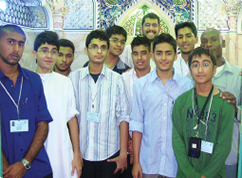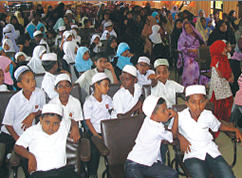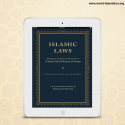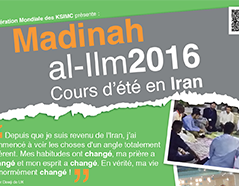With the arrival of the blessed month of Ramadan, laws relating to fasting are once again brought to the forefront of our minds. Now, His Eminence al-Sayyid Ali al-Husayni al-Sistani (may Allah protect him) latest rulings on fasting and spiritual retreat from this second edition can be quickly and easily accessed here.
Updated 4 September 2013
Providing service to the community on Family Ethics is not just the objective of The World Federation India Office but also the Khoja Shia Ithna-Asheri Jamaat Mumbai. Keeping this in mind, both the organisations join hands in presenting 4 Workshops on Family Ethics.
The Workshops will cover all members of the community from Teens, Youth, Married Couples and the Elders. The Couples workshop will be a weekend retreat and will be held outside the city while the other workshops will be held at Khoja Shia Ithna-Asheri Masjid Imambargah Hall at Dongri, Mumbai.
Key
Teen Counseling Workshop: Preparing teens for transition into adulthood with importance on relationship with parents, peer pressure,
Spouse Selection Workshop: To give the youth necessary insights, tools and support for making one of the biggest decisions of their lives
Couples Workshop: Aimed at eliminating communication gaps and how to keep the married life vibrant and rocking
In-Laws Workshop: Giving the in-laws guidance to
The admission fees have been highly subsidised to enable all to attend. The workshops will include meals and refreshments also.

Sayyid Aliraza Naqvi, ASG for Islamic Education says: “MashaAllah this is once again a new initiative by The WF India Office in accomplishing its objectives on Family Ethics. The India office is now in full momentum and is continuously coming up with new projects. We are thankful to the KSI Jamaat Mumbai who have come forward and partnered with the same objectives as The World Federation for the betterment of the community”
[email protected] or call +91 22 2347 3637.
Seats are limited and will be allotted after each
View poster
Related News
Updated 28 August 2013
 The World Federation is pleased to announce the availability of a new title: Book 1 of the most significant Shia collection of hadith: Al-Kafi, compiled by marhum Kulayni (ra).
The World Federation is pleased to announce the availability of a new title: Book 1 of the most significant Shia collection of hadith: Al-Kafi, compiled by marhum Kulayni (ra).










